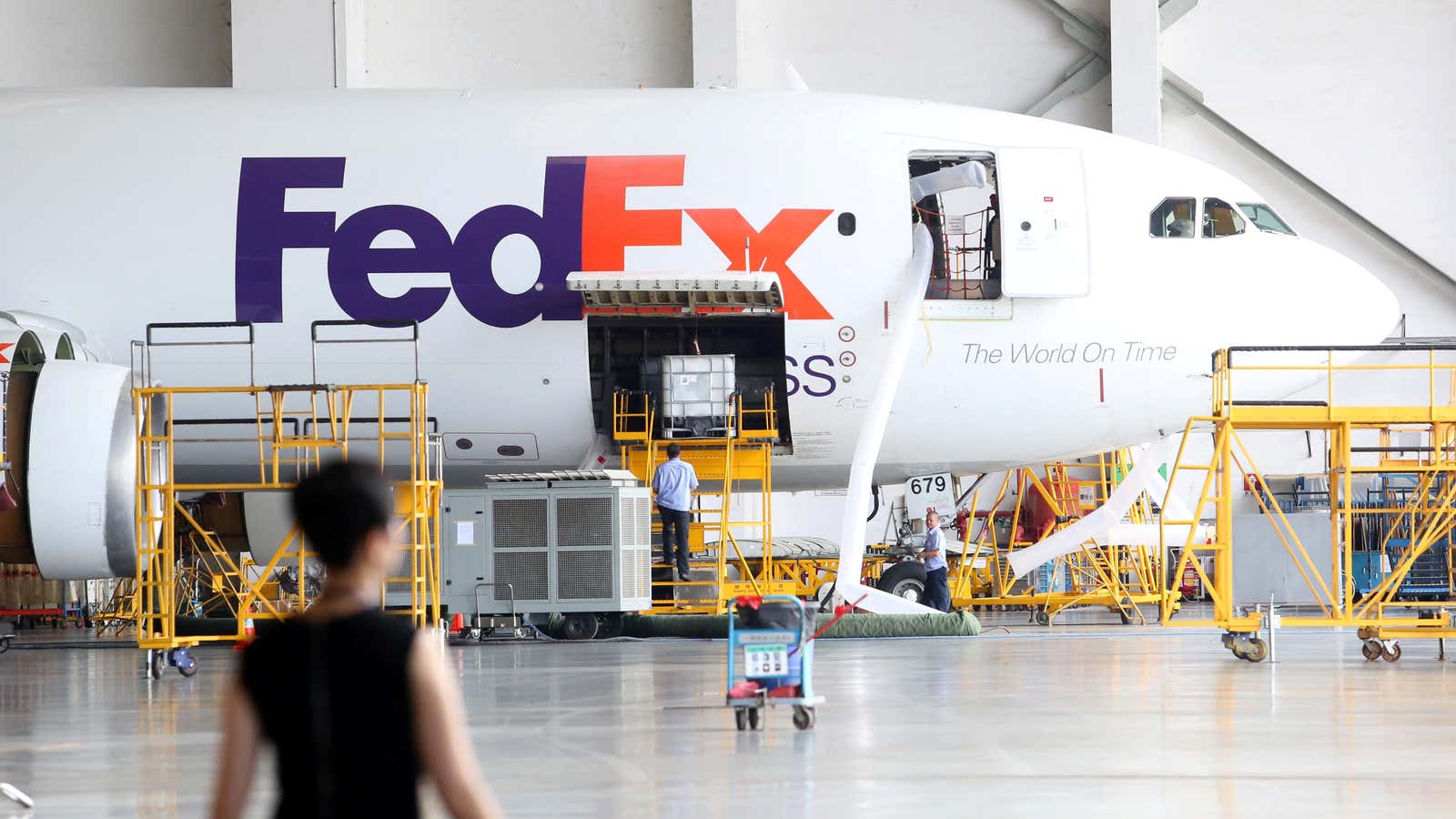On March 3, FedEx became the latest major company pledging to eliminate its greenhouse gas emissions. The company’s 2040 target to reach net-zero emissions comes with the promise of cash: $2 billion to buy electric vehicles, and $100 million to found a new climate solutions research center at Yale University.
The strategy suggests the company is ready to charge into electric vehicles (EVs), but is still hedging its expectations of low-carbon alternatives for its fleet of 679 aircraft. In 2019, FedEx flights were responsible for about the same emissions as three coal-fired power plants, or three-quarters of the company’s total footprint. Although the company says it has improved the carbon efficiency of its operations 40% since 2009, aviation remains a big emitter with few easy alternatives. FedEx clearly doesn’t see that challenge being resolved anytime soon—and in the meantime, the company is going to rely on offsets.
The Yale Center for Natural Carbon Capture will research the use of forests, farms, and other natural systems to draw CO2 from the atmosphere, and the development of credible offset markets so that companies can pay to support those systems, rather than directly reduce their consumption of fossil fuels. It will particularly focus on the aviation industry, according to a press release, which has lagged behind other transport sectors in decarbonizing.
FedEx hasn’t committed to a big carbon offset purchase yet. But by funding the center, it’s betting that it will be cheaper and easier to help develop a booming carbon offset market than to replace most of its fleet with airplanes that run on sustainable, plant-based fuels, hydrogen, or electricity. The plan says the company will continue to invest in airplane efficiency upgrades and push to get 30% of its jet fuel from alternative sources by 2030. But it makes clear that the 2040 target won’t be reachable without offsets. In other words, that fossil-powered planes are likely to be the norm for decades.
That skepticism could turn into a self-fulfilling prophecy, said Dan Rutherford, director of aviation and marine programs at the International Council on Clean Transportation, a think tank. “Prioritizing offsets undermines the business case for getting alternative jet fuel at scale and down the cost curve,” he said. The plan is best viewed as “a push for ground electrification married to an R&D program for offsets instead of alternative jet fuels.”
FedEx is not alone in this strategy. Offsets have been embraced as a short-term emissions fix by carbon-intensive companies like Delta, Amazon, and Shell. The global offset market reached record sales in 2020, according to Bloomberg, and now covers enough emissions, in theory, to offset the carbon footprint of Germany. But offsets—especially those based on natural systems rather than carbon-sucking machinery—aren’t always credible. Some go to protect forests that were never at risk, or perversely incentivize ranchers to cut forests down, or are simply shoddily verified.
Companies will need offsets to buy time before they can solve their most difficult low-carbon engineering challenges. The FedEx commitment shows just how long that might take.
